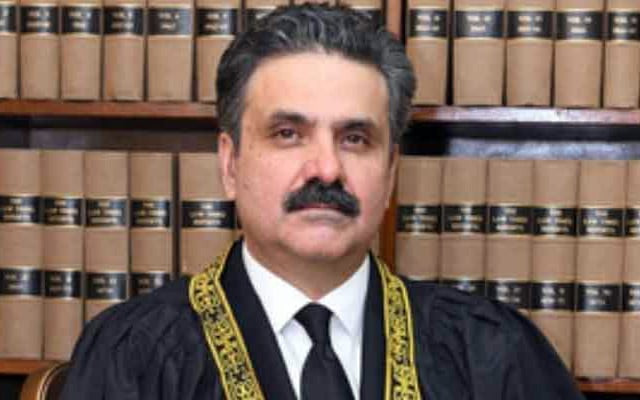The president of the Supreme Court of Pakistan (CJP) Yahya Afridi went to a room full of associates of the Court at the beginning of the new judicial year, addressing not only the corners that require improvements, but the steps that the Supreme Court has already taken, now it is formalized.
There was a great emphasis on digitalization and how to use the technology available so that the judicial system is even more efficient. The agenda was how to make the judiciary more efficient and address the “functioning” of the courts and the “administrative side” of things. The need for the time, according to the CJ, was how to reduce the delay and shorten the deadlines of the cases. The CJ Afridi recommended in its speech that this is done through the use of technology.
He put five pillars that would integrate technology into the daily processes of the courts. The first was “to improve the provision of services through technology, from less paper to paper without paper.”
Read: SC opens a new judicial year with a complete agenda
The president of the Supreme Court explains that the Court in the last year has slowly begun to integrate steps, as the presentation of digital cases has been introduced, the case files can now be transferred online and cases can also be completely traced. Electronic services have been implemented, such as electronic effidents and digital orders. The notices will now be distributed through WhatsApp and SMS.
One of the approaches, together with digitalization and more, a reasoning, was to make the issues of the court more accessible to the common citizen, which is what the second pillar addresses. “Improving access and responsibility,” as coined by the president of the Supreme Court, refers to making the judicial system a free and transparent area.
A direct line has been established only dedicated to providing an anonymous and safe form for citizens to report incidents of several corrupt practices, without having to fear the consequences of presenting the complaint. Each report will be tracked and addressed within 30-60 days, depending on the nature of the complaint.
When addressing the financial aspect of the Judiciary, it was announced that the Pakistan Government Audit Department conducted an external audit of the judicial accounts of 2024-2025. The result of that audit has reached the courts and the proposed concerns are being addressed.
A new initiative on the standardization of processes and quality guarantee has been implemented and will be formalized soon. The court has also taken measures to help litigants abroad through the creation of a litigate facilitation center abroad.
The third pillar on the agenda was to “strengthen the legal and regulatory framework”, referring to the steps that the court will take to use artificial intelligence. Most of these procedures were already practiced and advised, but now they will be formed by implementing rules.
“Everyone talks about artificial technology and intelligence,” so the 61,000 files will be digitally scanned and the project will be completed in six months. Once the cases have been scanned, the use of AI will be implemented and used for tasks such as programming cases.
New policies and procedure standards will be carried out that would help in the early audience policy and the fixation of cases outside their change. CJ Afridi declared that the judges are not restricted to travel during the holidays during the judicial recess, however, for ordinary license, the judges must inform the administration. These SOPs would be directed even more to rest courts and vehicles, and the granting of license for the judges.
The president of the Supreme Court addressed the contentious issue of security vehicles and that these will be restricted not only for other judges but also for the president of the Supreme Court. If the person of interest resides within Islamabad, they have no use for excessive security, but if they travel or need, then additional security vehicles will be provided.
Pending cases and delays in the hearings were highlighted, and the president of the Supreme Court states that the number of pending cases has not decreased despite the increase in the number of judges. This responded by stating that last year, 42,666 cases were recorded and this year, 77,433 cases have been registered. Last year, the lawyers submitted 22,425 applications for postponement and this year the number increased to 56,449 postponement applications.
The Pakistani courts are about to sign a memorandum of understanding (MOU) with the Popular Supreme Court of China, and a draft of the MOU is being reviewed with the Constitutional Court of Turkiye.
The court also participates in cooperative exchanges with the Supreme Courts of Bangladesh, Iran, Azerbaijan and Denmark. This is done with the globalization of our world in mind, the president of the Supreme Court declared that existing in isolation is no longer beneficial or possible.




